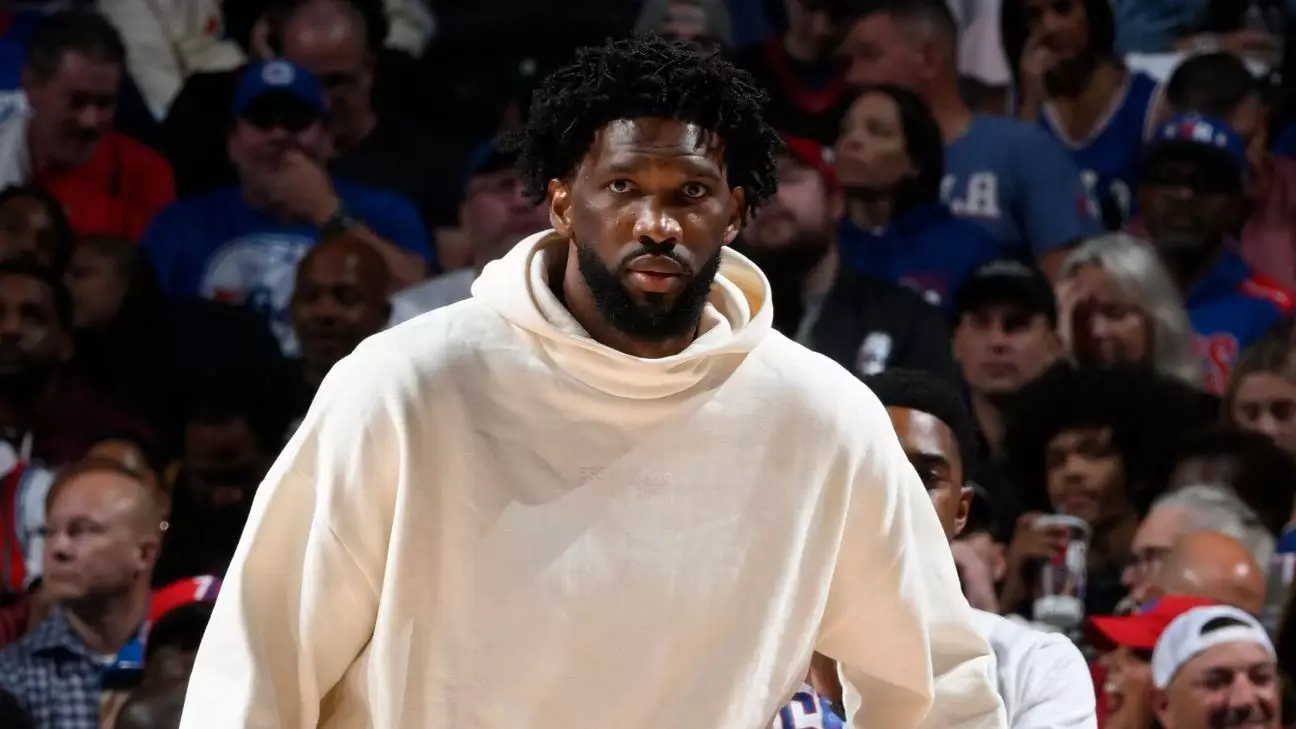Philadelphia witnessed a significant escalation in tensions as Joel Embiid confronted a local columnist following the 76ers‘ disappointing defeat against the Memphis Grizzlies. The incident unraveled in the team’s locker room and revealed not just Embiid’s emotional state but also the broader implications of media involvement in athletes‘ lives. After enduring a 124-107 loss, Embiid found himself embroiled in a heated verbal confrontation with Marcus Hayes, a columnist for the Philadelphia Inquirer. Tensions ignited when Hayes published a column that drew parallels between Embiid’s dedication to his profession and his personal life by mentioning his late brother and son, both named Arthur, while questioning his commitment to maintaining peak physical fitness.
Athletes are often under tremendous pressure, faced with public scrutiny that can sometimes venture into deeply personal territory. In this case, Hayes’ column appeared to cross that boundary. Embiid’s response, where he vehemently criticized Hayes for invoking his familial losses in a professional critique, is a testament to the emotional toll such commentary can have on players. The athlete’s reaction, culminating in him pushing Hayes, was fueled by a mix of frustration and defensiveness. „The next time you bring up my dead brother and my son again, you are going to see what I’m going to do to you,“ Embiid shouted, displaying just how deeply personal the discourse became for him. This moment raises questions about the responsibilities media figures hold when discussing athletes‘ lives.
This altercation also accentuates the ongoing discussion surrounding player well-being, particularly for someone like Embiid, who has faced continuous injury challenges. Having missed the start of the season due to left knee injury management, Embiid articulated his mounting frustration regarding assumptions that he is avoiding playing. „If your body doesn’t react well, and if your body tells you one thing, sit out,“ he asserted, emphasizing that his decisions are not motivated by a lack of desire to play but by a meticulous recuperation plan. This incident serves as a reminder that behind the athletic prowess lies a human being, grappling with pain, loss, and the unbearable pressure of performance.
In the wake of the incident, the role of the media comes under scrutiny. Columnists and reporters possess the power to influence public perception of athletes, both positively and negatively. While criticism can be constructive and necessary, it is crucial for journalists to navigate this responsibility delicately. Drawing on deeply personal aspects of an athlete’s life, as Hayes did, can sometimes undermine the spirit of journalistic integrity. It leads to a misplaced narrative that does not consider the potential repercussions on the athlete’s mental health and personal life.
Following the altercation, the 76ers organization announced that they would be investigating the incident. Daryl Morey, the president of basketball operations, stated, “We take the situation very seriously and are investigating.” This indicates that the team’s management recognizes the significant implications of such confrontations, not only for the individuals involved but also for the organization’s reputation. The incident might catalyze a reevaluation of player-media dynamics and emphasize a need for more respectful boundaries in reporting.
The incident sheds light on the intricate relationship between athletes and the media. While scrutiny and analysis are part of professional sports, they should not come at the cost of personal tragedy. Joel Embiid’s confrontation with Marcus Hayes serves as a critical reminder of the impact that words can wield, urging media professionals to exercise greater caution in their narratives. As the 76ers continue to navigate this season, both on and off the court, it will be essential to foster an environment where player welfare is prioritized, and personal struggles are respected rather than sensationalized. In the end, the realization that athletes are more than mere performers—each with their own stories and struggles—should guide both media coverage and fan expectations moving forward.


Napsat komentář